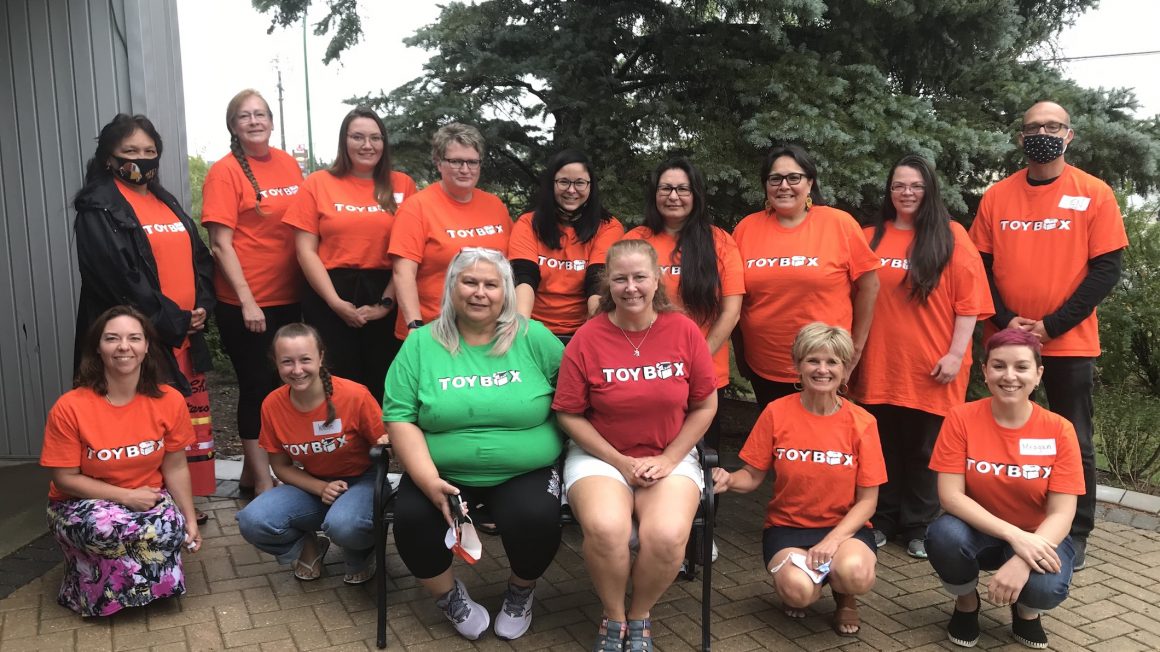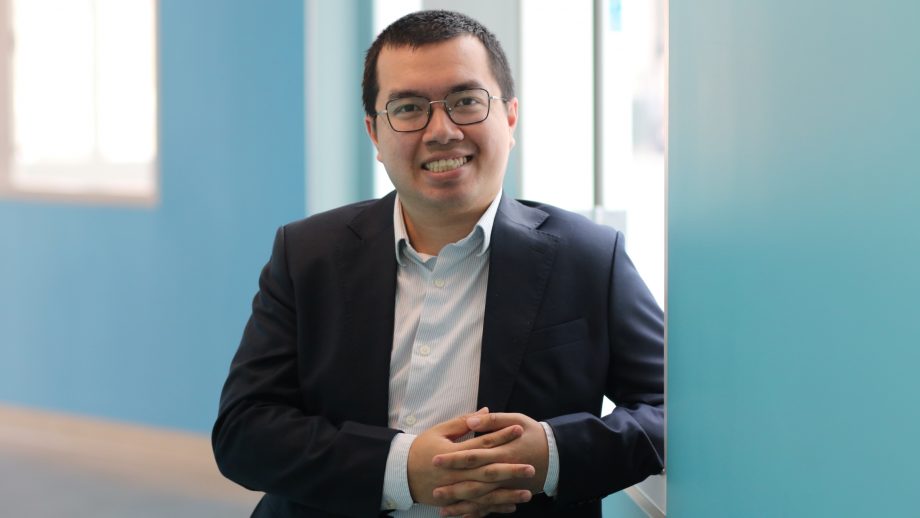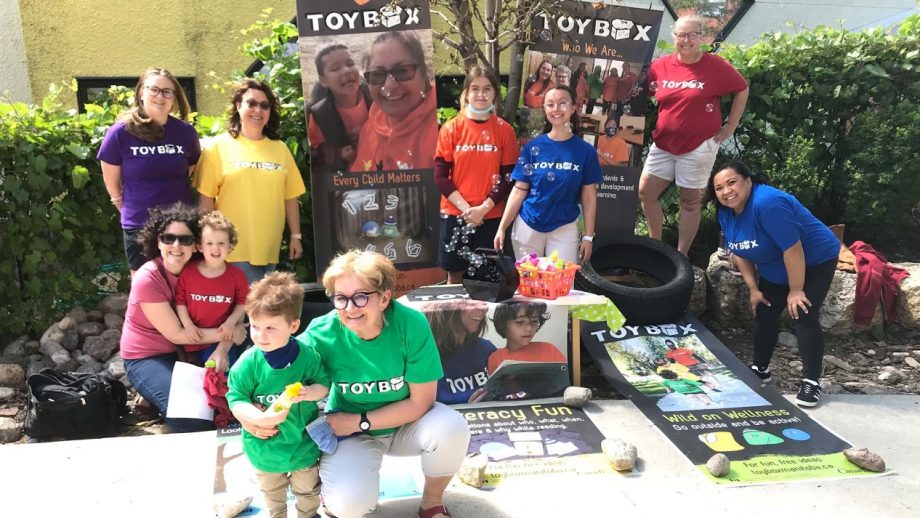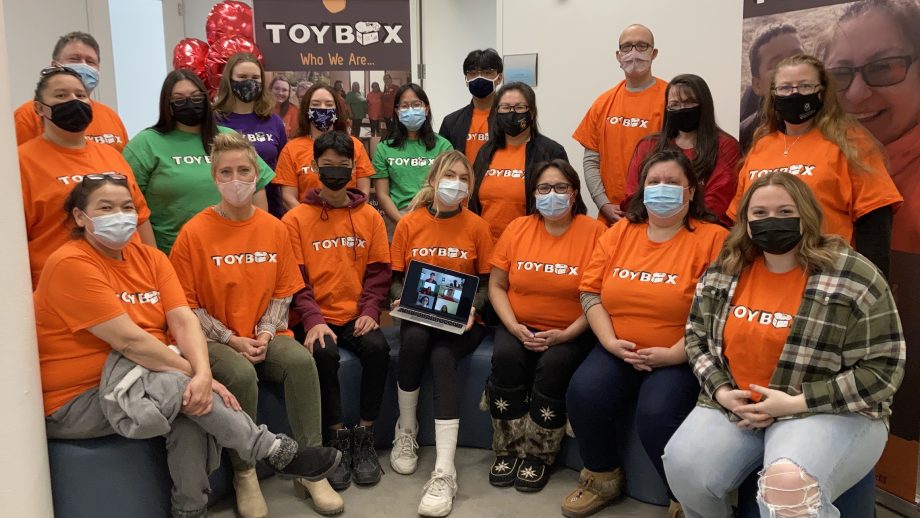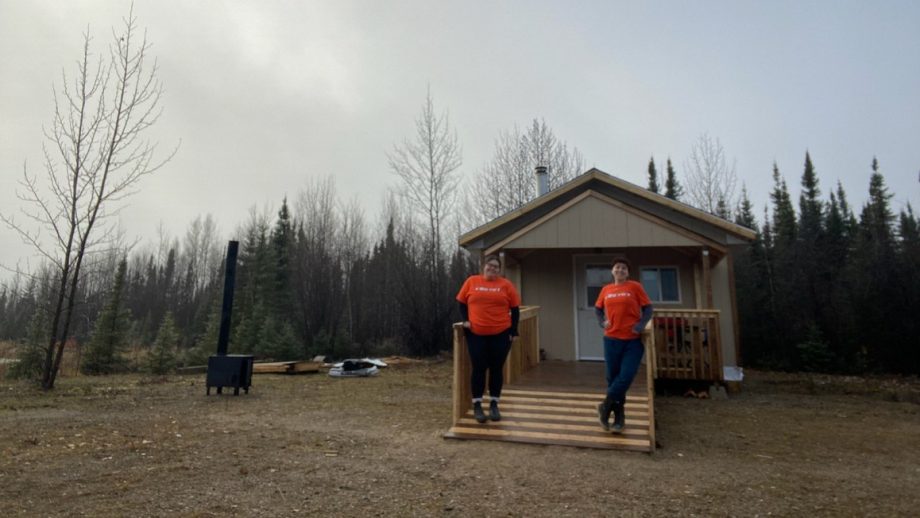Dr. Sheri-Lynn Skwarchuk and her grassroots team that makes up the ToyBox project have been working for three years to help Manitoban parents improve their children’s numeracy and literacy skills, as well as their wellness.
As the project moves forward in its development, the team is now hoping to make Toybox more accessible to Indigenous communities.
We’re focused on capacity building, establishing trust, and showing that these strategies for childhood are important for everyone, not just families with children two to eight years old.
Dr. Sheri-Lynn Skwarchuk
Skwarchuk and some team members recently met with Aboriginal Head Start Program Directors Liz Keeper, Vivian Scott, Lianna Wanbdiska, and Corinne Whiteway, as well as Jackie Connell, Assistant Superintendent from the Frontier School Division, to start the process towards Indigenization.
“I learned a lot from everyone and it’s not going to be a simple process,” said Skwarchuk. “One of the interesting things I learned is when we talk about Indigenous Peoples, every community is different. They are representing different languages, cultural processes and traditions, and organizational structures.”
The ToyBox project aims to support #10 and #12 Truth and Reconciliation Calls to Action which include supporting the need to improve education attainment levels, provide opportunities for parents to engage with their children’s education, and develop culturally appropriate early childhood education programs.
Skwarchuk and her team have also been invited to visit the Head Start Program centres in a few communities. They plan on visiting Tataskweyak Cree Nation (Split Lake) this fall and Berens River First Nation in the spring to meet with community members and learn new ways to support these communities with ToyBox content.
“I learned that you have to establish trust,” Skwarchuk said. “This is a mutually collaborative project.”
In hopes of starting the process now, Skwarchuk has invited Dr. Yvonne Vizina and Dr. Jeannie Kerr, both from the Faculty of Education, to support Indigenization and accessibility for vulnerable populations specifically.
Vizina recently co-authored a report exploring a holistic approach to advancing reconciliation. The tool kit, which has been released by the Canadian Commission for UNESCO, provides a background to the concept of reconciliation and dispels some of the myths, misconceptions, and stereotypes that impede reconciliation.
Kerr is an expert in decolonial education and her research examines the reproduction of societal inequalities through K-12 and higher education, and considers ways that both teacher education and higher education can engage complexity, uncertainty, and diversity to address local and global inequalities.
“We’re focused on capacity building, establishing trust, and showing that these strategies for childhood are important for everyone, not just families with children two to eight years old,” Skwarchuk said. “They are a solid foundation for everyone.”
In addition to Indigenizing ToyBox, Skwarchuk’s team has been working hard over the summer to create a catalog of all the strategies, as well as creating a new logo incorporating their ToyBox characters.
They’ve also partnered with the Pine Creek School Division to take part in a wellness fair.
“We’re going to start a fairly big evaluation phase of the strategies by testing them with children and seeing the results of that,” said Skwarchuk.
To learn more about the ToyBox project, visit them on Facebook, Instagram or on their website.

